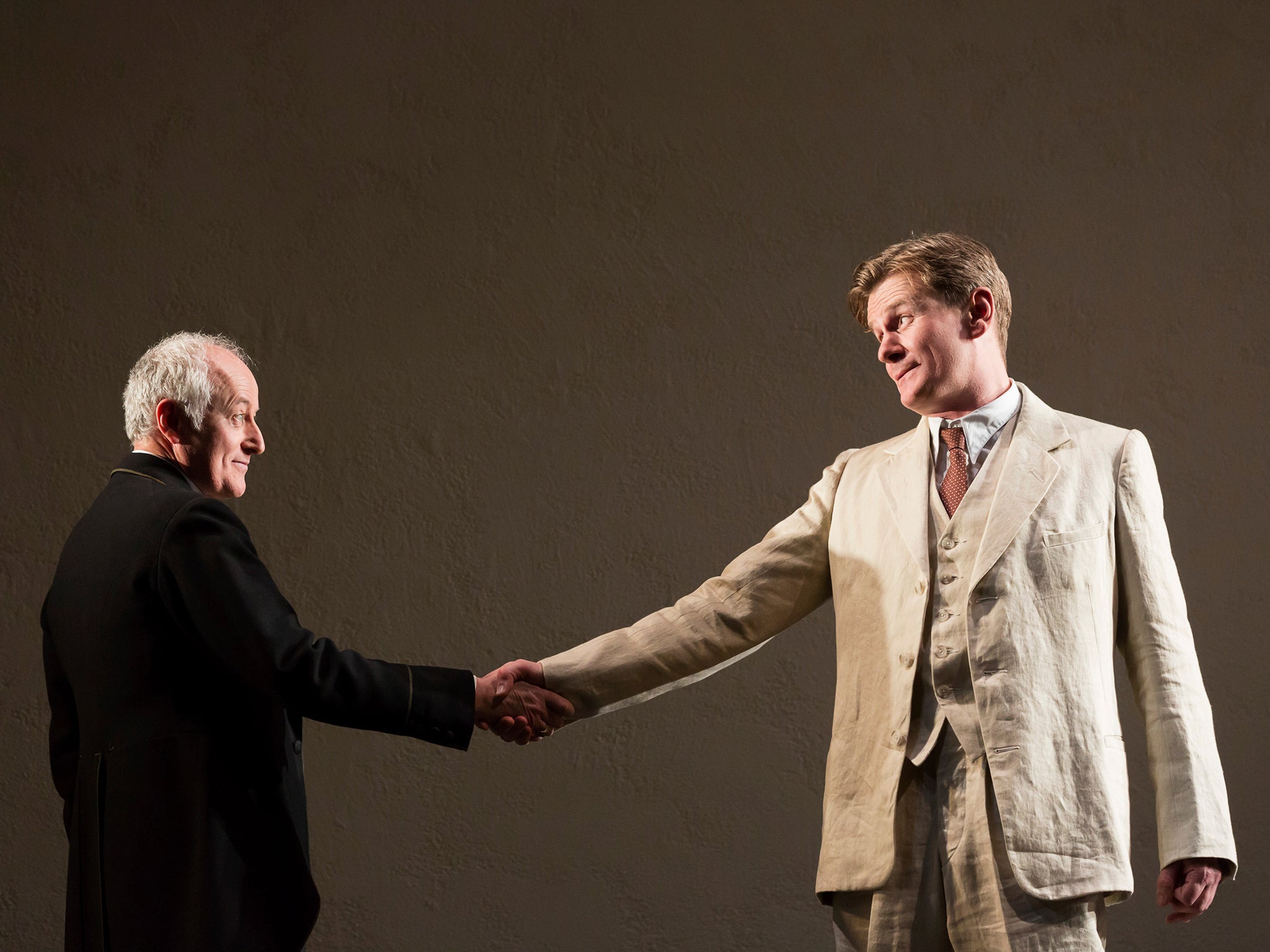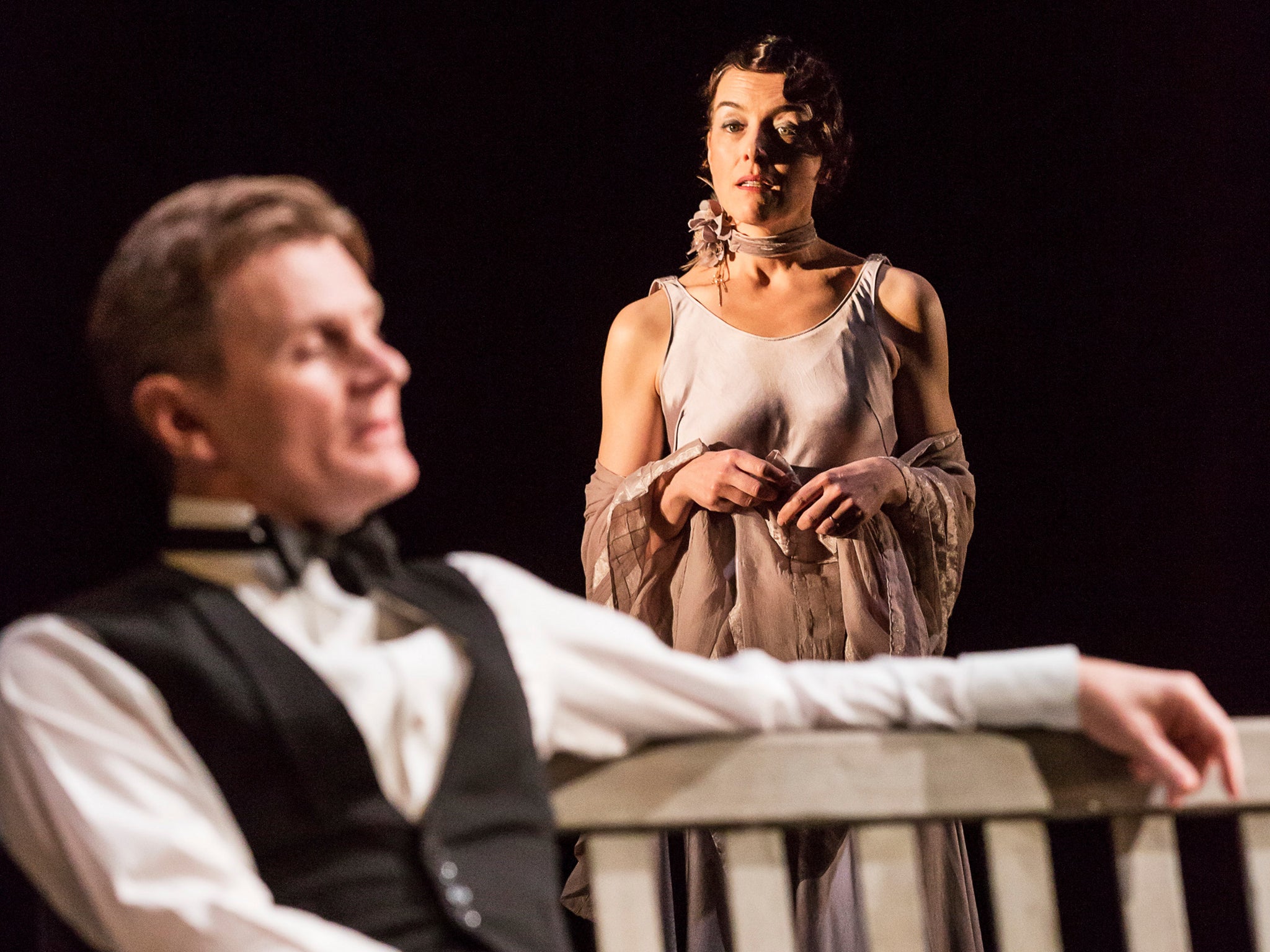Waste, Lyttleton Theatre, review: Revival of shrewd and clued-up work is compulsory viewing
Written in 1907 and revised in 1926, Harley Granville Barker's work is perennially a play for today

“All political lives, unless they are cut off midstream or at happy juncture, end in failure,” opined Enoch Powell. Harley Granville Barker's phenomenally shrewd and clued-up Waste was written in 1907, revised in 1926, and is perennially a play for today as this luminous, penetratingly performed revival by Roger Michell richly attests. It's place in the history of censorship ostensibly rests on the way the plot partly turns on the backstreet abortion that kills the mistress of the Independent politician, Henry Trebell, at its centre. But given that references to such “scandalous” matters were allowed in the comfort zone of cheap, lurid melodrama, what seems to have stuck in the craw of the Lord Chamberlain was the undeluded eye Barker casts over the cynicism and backstage wheeler-dealing in he in political sphere
Smoke-filled rooms: that's where these fudges and fixes are held to be brokered in reality and fiction. Not here, though. The settings by Hildegard Bechtler – from country house party to political offices to cabal of Tory grandees in a private Westminster drawing – are arrestingly abstract and minimalist, recofiguring themselves like kinetic rectangles in a sort of lit-from-within mobile Mondrian painting. Trebell finds himself shafted every which way when measured against Powell's definition. His career is cut off in midstream but not happily and by his own hand. He is an idealist who has been persuaded to join the Tory ranks to steer a bill through Parliament that will disestablish the Church of England – an act of privatisation that he believes will release funds for egalitarian educational projects.

Charles Edwards's performance brilliantly captures the ambivalence that you can't help but feel towards this figure. He cuts the cant; he's mocking of others, self-mocking of himself; he's debonairly attractive, but hasn't kissed a woman for ten years before he puts the moves on Olivia Williams's superbly acted Amy O'Connell, who is trapped in a loveless and sexless marriage. He's not a cad but he seduces her with an efficiency suggests that he might be rather better in a committee room than in bed. Still, you want to help Edwards's Trebell with his human inadequacies. Olivia Williams shatteringly communicates a woman who signals for help on the treacherous fault-line where glittering sophistication and the vertiginous risk of unrespectability converge. To see her attacking her pregnant body as though it were now a crime scene is to know acutely the many forms in which men can disenfranchise women.
Except for the twist that, during his downfall, when the parties use the scandal to close ranks against him, Trebell's despair is supposed to be further humanised by his pining for the lost child. That is the one aspect of the play that I do not feel Barker makes fully convincing – unlike Trebell's deep sibling relationship with his devoted sister (played to perfection by Sylvestra LeTouzel. They end up like Babes in the Wood in a world of patrician patch-ups and pettiness it may have been wiser for them never to have entered. Compulsory viewing.
To March 19; 020 7452 3000
Join our commenting forum
Join thought-provoking conversations, follow other Independent readers and see their replies
Comments
Bookmark popover
Removed from bookmarks